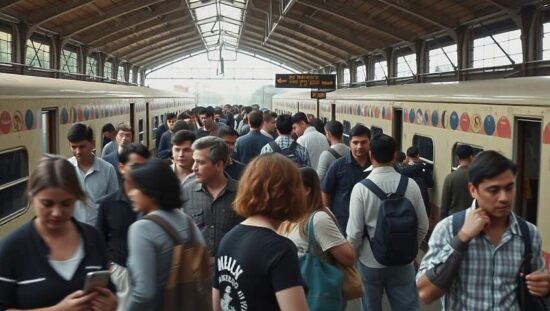redeploying federal police officers currently assigned to border controls to bolster security in train stations and on trains..
SPD parliamentary spokesperson Sebastian Fiedler argued that diverting personnel from border patrols – which he suggested could be largely managed through technologically advanced, “Smart Border Control” measures – could free up approximately 4,000 officers for railway station duties. This strategic reallocation, he contends, would yield a ‘double win’ – enhanced safety for commuters and reduced congestion at border crossings. This proposal echoes concerns raised by Andreas Roßkopf, head of the German Police Union (GdP), who recently stated that 3,000 to 4,000 federal police officers are lacking at railway stations. He also called for officers to be granted a suspicion-independent “basic authority” to conduct checks.
Green Party parliamentary spokesperson Marcel Emmerich echoed the sentiment, labeling current border controls as “unlawful and disproportionate” and advocating for their termination to swiftly increase station presence. He suggested these controls are unnecessarily tying up personnel with little meaningful effect.
However, the proposal has met resistance, particularly from within the conservative bloc. Alexander Throm, spokesperson for the CDU/CSU parliamentary group, dismissed the idea of personnel cuts to border controls, insisting the federal police are adequately staffed for both border security and railway station duties. Instead, he emphasized technological solutions like video surveillance with facial recognition, while also highlighting ongoing efforts to reform the federal police law to expand the force’s authority, including the ability to conduct personal searches in weapon prohibition zones. He emphasized the importance of reducing the influx of illegal migration.
Adding a layer of complexity, Markus Matzerath, AfD’s interior policy spokesman, cautiously supported the idea of temporarily expanding police powers – specifically, suspicion-independent searches – as a response to what he characterized as a security situation exacerbated by “failed migration policy”. However, his party expressed general opposition to expanding surveillance practices.
The debate has also been injected with constitutional and ethical concerns. Clara Bünger, spokesperson for the Left Party, criticized the provision for suspicion-independent checks as already undermining the presumption of innocence and potentially leading to discriminatory practices. “These powers lead to arbitrary measures and racial profiling” she argued, highlighting a potential violation of Germany’s constitutional anti-discrimination clause and the stigmatization of entire groups.
The German Police Union (DPolG) has welcomed the SPD and Greens’ proposals, recognizing their shared demand for increased resources and expanded powers. However, the union also acknowledges the ongoing challenges in police recruitment and advocates for leveraging modern video technology, including AI-powered anomaly detection software, to optimize security measures while maintaining anonymity.





